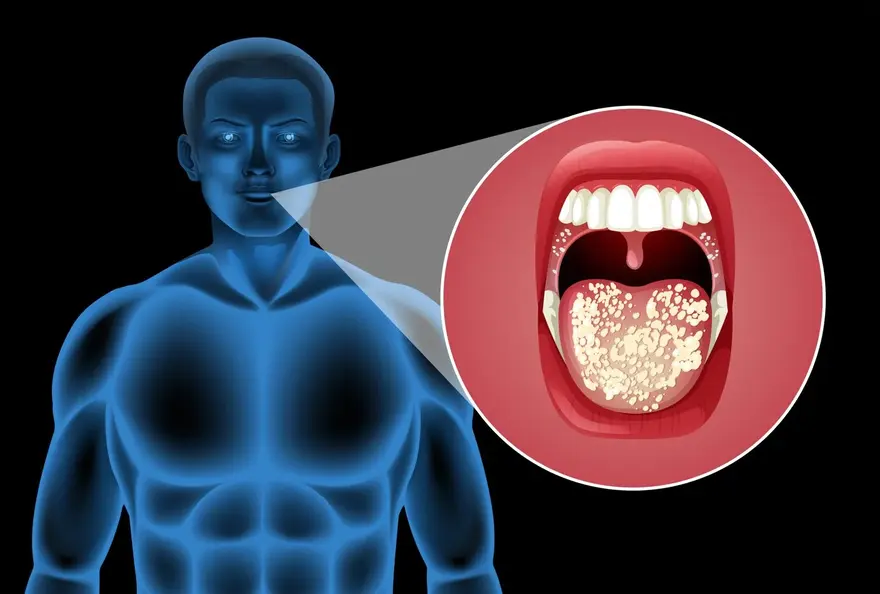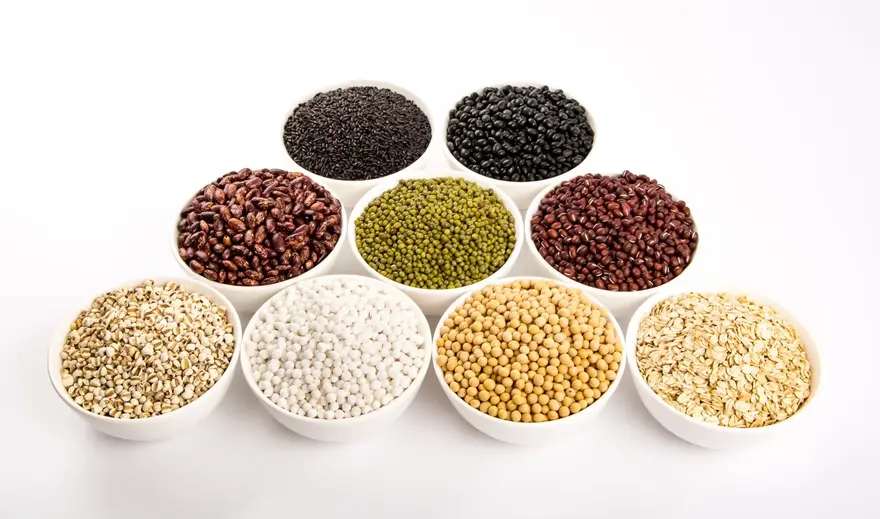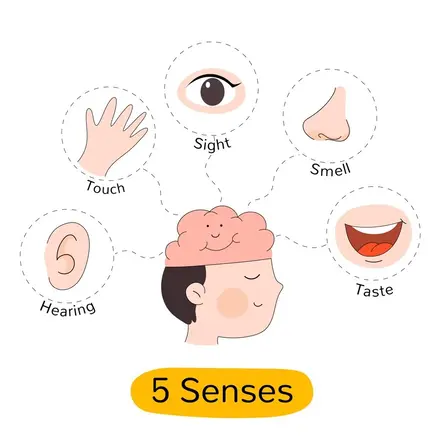Preventive Healthcare
Yellow Tongue: Causes, Symptoms, and How to Treat It
293 Views
0

A yellow tongue, characterised by a yellowish coating on the tongue's surface, is a relatively common condition that can cause concern. While poor oral hygiene is often the culprit, leading to a buildup of bacteria, dead cells, and debris, a yellow tongue may occasionally signal an underlying health issue.
In this article, we'll delve into yellow tongue causes and symptoms, how it's diagnosed, and the treatment options available. Our goal is to equip you with the knowledge to identify a yellow tongue, understand its implications, and take appropriate steps to restore your tongue to a healthy pink.
Whether you're dealing with yellow tongue due to lifestyle factors like smoking or poor brushing habits, or have concerns about a potential medical condition, this guide will provide the clarity and direction you need.
Why is our tongue yellow?
A yellow tongue occurs when there is a buildup of dead skin cells, bacteria, yeast, tobacco stains, or other debris on the tongue's surface. Poor oral hygiene is a primary culprit, allowing this yellowish film to accumulate over time. Certain foods and drinks, like coffee and tea, contain staining particles that can also contribute to discolouration.
In some cases, a dry mouth can exacerbate the issue by reducing saliva flow, which normally helps cleanse the tongue. Less commonly, an overgrowth of papillae or an underlying medical condition may cause the tongue to take on a yellowish hue.
What does a yellowish tongue mean?
A yellow tongue is often an indication of poor oral hygiene habits or exposure to staining substances. However, it can occasionally be a warning sign of an underlying health problem. Conditions like acid reflux, bacterial or yeast infections, and in rare cases, jaundice related to liver issues, may manifest with tongue discolouration.
Who does yellow tongue affect?
Yellow tongue causes can impact people of all ages, but is more common in individuals with suboptimal oral hygiene routines, tobacco users, and those with certain health conditions or taking specific medications.
What causes yellow tongue?
Several factors can contribute to the development of yellow tongue causes, ranging from lifestyle habits to medical issues:
- Poor oral hygiene: Failing to brush and floss regularly allows bacteria, fungi, and dead cells to accumulate on the tongue's surface, leading to a yellowish buildup.
- Tobacco use: Smoking or chewing tobacco can stain the tongue yellow due to the tar and nicotine content.
- Certain foods and drinks: Consuming coffee, tea, red wine, and deeply colored berries can leave staining particles on the tongue.
- Dry mouth: Conditions that reduce saliva production, such as dehydration, mouth breathing, or medications with dry mouth as a side effect, can allow debris to collect on the tongue more easily.
- Medications: Some antibiotics, antipsychotics, and antihypertensives may cause tongue discolouration as a side effect.
- Oral thrush: This yeast infection, caused by an overgrowth of Candida albicans, can create white or yellowish patches on the tongue.
- Black hairy tongue: A harmless condition where the papillae become elongated and trap bacteria and stains, sometimes appearing yellowish before turning dark.
- Geographic tongue: This benign condition causes patches of papillae to disappear, leaving irregular red areas that may be bordered by a yellow or white coating.
- Gastric reflux: Acid backing up from the stomach can irritate the tongue and contribute to discolouration.
- Jaundice: In rare cases, a yellowing of the tongue might indicate a buildup of bilirubin related to liver disease.
It's important to note that a yellow tongue diagnosis is usually harmless and resolves with proper oral care. However, if the discolouration persists, is accompanied by pain or other unusual symptoms, or you suspect an underlying condition, it's best to consult a healthcare professional for an accurate diagnosis and appropriate treatment plan.
What are the symptoms of yellow tongue?
Among yellow tongue symptoms, the primary sign is a noticeable yellowish coating or film on the tongue's surface. This discolouration can range from a light, barely visible yellow to a thicker, more pronounced layer. Some people may also experience:
- Bad breath or an unpleasant taste in the mouth
- A burning or tingling sensation on the tongue
- Dry mouth or excessive thirst
- Sore throat or difficulty swallowing
- Papillae that appear longer or larger than normal
- Cracks or grooves on the tongue's surface
In rare cases, a yellow tongue may be accompanied by more severe symptoms like:
- Fever or chills
- Persistent pain or tenderness in the tongue
- Difficulty speaking or moving the tongue
- Yellowing of the skin or eyes (jaundice)
If you experience any of these additional yellow tongue symptoms, it's crucial to seek medical attention promptly, as they could indicate a more serious underlying condition requiring treatment.
How is yellow tongue diagnosed?
A yellow tongue diagnosis typically involves a visual examination by a healthcare provider. They will assess the tongue's appearance, texture, and any accompanying symptoms. In some cases, a detailed medical history and additional tests like blood work or oral swabs may be necessary to rule out underlying conditions.
How do you get rid of a yellow tongue?
Yellow tongue treatment depends on the underlying cause but often includes simple home remedies and lifestyle changes:
- Improve oral hygiene: Brush your teeth twice daily, floss regularly, and gently brush your tongue or use a tongue scraper to remove buildup.
- Quit smoking: Eliminating tobacco use can prevent further staining and promote overall oral health.
- Stay hydrated: Drinking plenty of water can help stimulate saliva production and prevent dry mouth.
- Limit staining foods and drinks: Reduce your intake of coffee, tea, and deeply pigmented foods that may contribute to discolouration.
- Manage underlying conditions: If your yellow tongue symptoms are related to acid reflux, thrush, or another medical issue, treating the root cause can help resolve the discoloration.
In most cases, a combination of good oral hygiene practices and lifestyle modifications can effectively treat a yellow tongue. If the discolouration persists or you have concerns, consult your dentist or doctor for further guidance.
Can we prevent yellow tongue?
Preventing a yellow tongue involves adopting healthy oral hygiene habits and making some lifestyle adjustments:
- Brush and floss regularly: Maintain a consistent oral care routine, brushing your teeth twice a day and flossing daily to remove plaque and bacteria.
- Use a tongue scraper: Gently scraping your tongue once or twice a day can help remove the buildup of debris and prevent discolouration.
- Quit smoking: Avoiding tobacco products can significantly reduce your risk of developing a yellow tongue and other oral health issues.
- Limit staining foods and drinks: Reduce your consumption of coffee, tea, red wine, and deeply pigmented foods that can contribute to tongue discolouration.
- Stay hydrated: Drinking water throughout the day can help stimulate saliva flow, which naturally cleanses the tongue and prevents dry mouth.
- Manage underlying conditions: If you have acid reflux, diabetes, or another chronic condition that may contribute to yellow tongue, work with your healthcare provider to keep it well-controlled.
- Schedule regular dental check-ups: Visit your dentist for professional cleanings and exams every six months to maintain optimal oral health and catch any potential issues early.
What's the outlook for people with yellow tongue?
For most people, a yellow tongue diagnosis is a harmless and temporary condition that resolves with proper oral hygiene and lifestyle changes. Once the underlying cause is addressed, the tongue typically returns to its normal color within a few weeks.
However, if the discolouration persists despite self-care measures, or if you experience pain, difficulty swallowing, or other concerning symptoms, it's essential to consult a healthcare professional. In rare cases, a yellow tongue symptoms may indicate a more serious underlying condition that requires prompt medical attention and treatment.
When to see a Doctor
While a yellow tongue is usually benign and can be managed at home, there are certain situations where seeking medical advice is necessary:
- Persistent discolouration: If your yellow tongue does not improve after a few weeks of proper oral hygiene and lifestyle changes, consult your dentist or doctor.
- Pain or discomfort: If your tongue becomes painful, tender, or swollen, or if you experience difficulty swallowing or speaking, seek medical attention.
- Other symptoms: If your yellow tongue is accompanied by fever, chills, or other concerning symptoms, consult a healthcare professional promptly.
- Jaundice: If you notice a yellowing of your skin or eyes along with your yellow tongue, seek immediate medical care, as this may indicate a serious liver issue.
Conclusion
In conclusion, a yellow tongue is a common condition that can cause concern but is usually harmless and easily treatable. By understanding the various causes, from poor oral hygiene to underlying health issues, you can take proactive steps to prevent and manage tongue discoloration.
At Metropolis Healthcare, we understand the importance of oral health in overall well-being. Our team of skilled pathologists and technicians offer a wide range of diagnostic tests, including those related to underlying conditions that may cause yellow tongue. With our convenient at-home sample collection service, you can have your blood or other samples taken in the comfort of your own home, and access your test results online via email or our user-friendly Metropolis TruHealth app.























 WhatsApp
WhatsApp